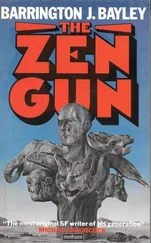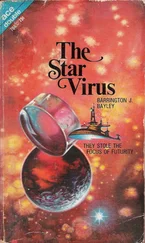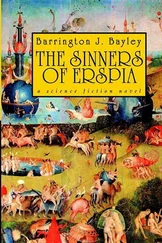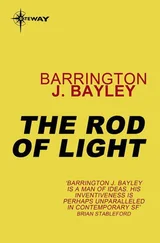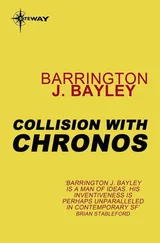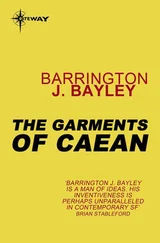Rodrick’s lips quirked. “Because it’s never been done, perhaps? No, that’s being facetious. Perhaps it’s to end the fawning ingratiation towards God one sees in people. The universe should exist on its own, should be independent. I’ll feel better knowing it’s broken free of the father-figure. I am by inclination, you see, emphatically an atheist.”
Rodrick said this light-heartedly. But suddenly, to my bewilderment, his tone changed and his expression became a sneer. “No, I’ll tell you why it is,” he said quickly. “It’s because God is far from being the source of all that’s good in the world, if you want my opinion. Life is a sordid business, all pain, frustration, disappointment and misery. What chance has anybody got to accomplish anything? Just look around you—children dying of cancer… everything going wrong…. I’ll tell you something: this world’s been put together like a Mickey Mouse watch! It’s a shoddy, botched-up job! I tell you, He deserves everything He’s going to get!”
This outburst, so astonishing from my point of view, was the first hint I had ever received that Rodrick felt so bitter about the moral aspects of existence, or indeed that he functioned on the level of feeling at all. He thrust a pair of goggles at me and told me to put them on. When I had done so he switched on his machine and the lasers began to discharge.
Even through the darkened shades the intricate display they projected was dazzling. The maze of light grew brighter and brighter as the beams traced out their endlessly returning path. The glow seemed to expand, to slowly engulf the mirrors and prisms that bent and reflected the light. For a while it all grew hazy, like a picture of a distant star cluster. Then it seemed to become more strongly defined, to solidify, until finally it became so bright that I could no longer bear it and I turned away.
When I looked again, the apparatus was dead. Later Rodrick was to explain that a fuse had blown. But at the time he merely whipped off his goggles and spoke in a flat, cracked voice.
“It’s done. God is dead.”
I laughed, though without enthusiasm. “Really, Rodrick, how preposterous,” I said, removing my own goggles. Then I saw his flat and lifeless eyes, and I knew that the mistake was mine.
Not in Rodrick alone do I notice the difference. I see it in everything and in everyone, including myself. Conversation these days is mechanical and repetitive, and one has but to look into people’s eyes to realise that they are all dead inside. Life continues in a fashion, of course: the machinery of the universe grinds on. But the days and nights have a blankness about them, a tedious emptiness. There are sunsets, dawns, the phases of the moon, the procession of the seasons, but all unenlivened by that majestic ambience that formerly shone through them.
What did God supply, after all, when he was alive? He supplied the beauty, the meaning and the mystery, with which the physical world was then imbued. This was what theologians meant, perhaps, when they said that the creation was continuous. But now it is all gone. There is no beauty, no inner life. Even colours have become flat and dull.
And so I can report that the Satanic rebellion succeeded one July evening in a small English town, and that God, not quite omnipotent as it turned out, is dead. I will ask no one to verify this event for themselves as for many, of course, it will have passed unnoticed. As for Rodrick, I grow tired of his stale utterances, of his dead mackerel eyes, of his increasing lethargy. Though we still meet for our customary talks, he repeats himself now in a manner that once he would simply not have permitted himself. Often he will simply sit and repeat like a parrot, “God is dead, God is dead. We are alone.” It is a long time now since I heard anything original from him.
The Ship that Sailed the Ocean of Space
Rim is the kind of man who would poke his head into Hell just to see how hot it is there.
He’s thickset, not very tall—but physical features like these don’t count for much when you look at Rim these days. All you see is a dishevelled, bleary layabout who scratches himself all the time because we gave up bathing and washing years ago.
Rim and I have got a pretty cushy number. We’re in this orbiting spaceship out beyond Neptune, and we’re supposed to be researching into the incidence of high-energy particles and all that stuff. Or rather, Rim is, because I don’t know anything about physics. I’m supposed to be his companion, to stop him from feeling lonely.
That’s a laugh. But I’m an old pal of Rim’s, and I never made out too well on Earth as far as jobs are concerned. When he told me about this easy-living deal, well, I was glad to get away from the nomadic life.
Actually, Rim is one of the system’s best physicists, and could do much more valuable research, but this is the only job he can get since he punched the director of Sub-Nuclear Research at London University. Still, I think I prefer it out here.
Actually, it’s quite O.K. Not like Hell—too cold—but we’re snug and warm in our quarters. Occasionally Rim condescends to spend a few hours at his job of tracking down the little wiggly particles and whatnot, the rest of the time we spend lounging around, boozing, quarrelling, sometimes leading to brawls—Rim always wins but I swear I’ll beat the bones out of him before I’m done. We’ve got a lifetime’s supply of brown ale. It takes us about a year to get through it, then we head back to Earth to restock, and make our way out here again.
Last time we were home Rim was told off about his meagre reports; but this period I haven’t noticed him do any work at all.
You can’t blame him. It’s a bit routine for a man like Rim and he was meant for better things.
Sometimes we get tired of the inside of the research ship so we suit up and go and sit outside, squeezing brown ale through our suits’ fluid intakes, and gazing at the universe. Space is a fine sight, especially out here where the sun is hardly more than a very bright star. It’s very dark, but not dim, that is, you can see all right, but there’s nothing nearby to see. It’s cold, and lonely.
Still, Rim and I don’t mind. We’ve both had our fill of human beings, and I hear they’re talking about prohibition down on Earth now.
Anyway, it was as we were sitting out there one day that I suddenly noticed that I could see something.
I pointed it out to Rim. It was a dark object, too small and distant to have any features, but it occluded stars, and light reflected off it.
“Boy,” Rim said wonderingly, “maybe it’s an asteroid.”
This idea pleased him. We’d never before found any asteroids out here, but there were some explosives in the storeroom for blowing them open if we did. Rim loves playing with explosives.
We scrambled through the airlock, took off our helmets and went to the control room. Rim soon got the object on the view-screen and took a few instrument sightings. “She’s moving about thirty miles an hour,” he told me as he started up the manoeuvring jets. “We’ll go and have a look.”
“Thirty miles an hour? That’s not very fast, is it?”
“Relative to us.” Through the matted hair and whiskers that all but covered his face, I discerned a slight frown. “I expect it’s in orbit, same as us.”
“Then why has it got a velocity difference of thirty miles per hour? It ought to have the same velocity.”
Rim didn’t answer. He had a bottle to his lips. But when we got closer to the asteroid, he started tapping the massometer impatiently. Finally he gave it a brutal kick.
“Hey, what’s the matter?” I demanded.
“The massometer,” he mumbled, “it’s not working.”
Читать дальше




